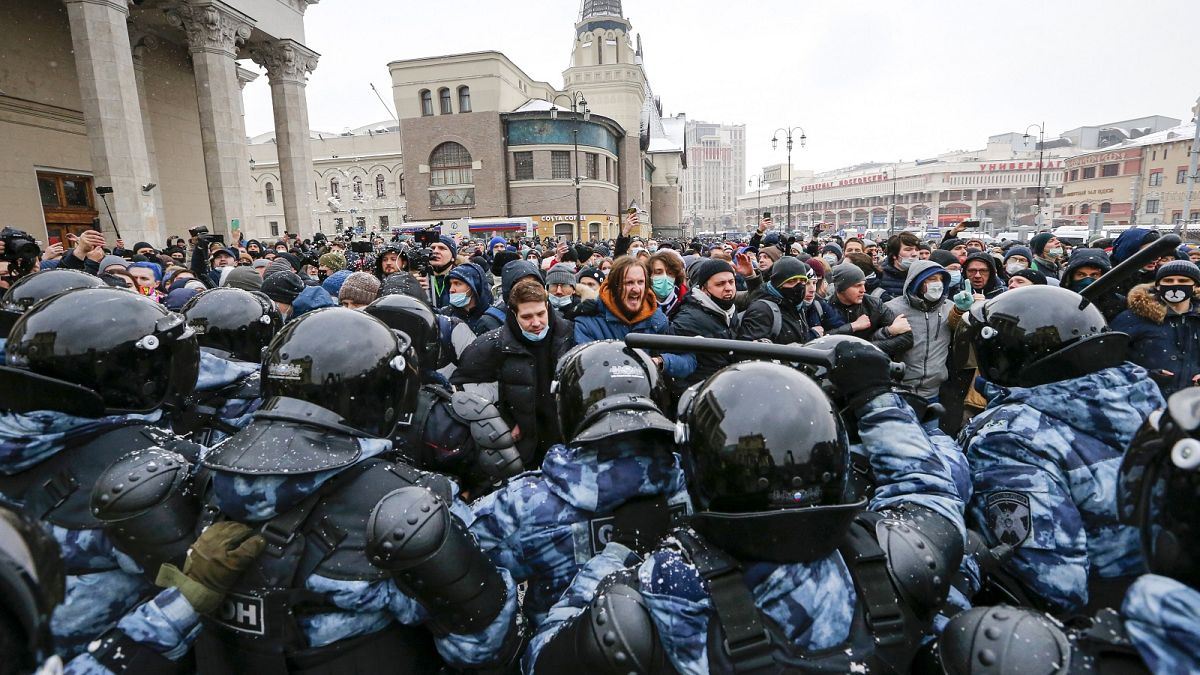Russia expels diplomats from Germany, Poland and Sweden amid claims they took part in pro-Navalny protests.
Russia says it has expelled diplomats from Germany, Poland and Sweden amid claims they took part in pro-Alexei Navalny protests.
The move, condemned by German Chancellor Angela Merkel as "unjustified", comes on the day the EU's foreign affairs chief Josep Borrell is in Moscow on a three-day diplomatic visit.
Russia's foreign ministry said they took part in illegal demonstrations in support of the well-known Kremlin critic Navalny on January 23.
It said their actions in attending protests in Moscow and Saint Petersburg "were unacceptable and incompatible with their diplomatic status".
Borrell told Euronews he learned that the three diplomats were to be expelled from the country during his meeting with Russian foreign minister Sergey Lavrov.
"I reject the allegations that these diplomats were performing activities incompatible with their role as diplomats. This decision has to be reconsidered. All European member states are united against it," Borrell said.
In an earlier statement issued by his spokesman Peter Stano, Borrell "strongly condemned" Russia's decision to expel three European diplomats while he is visiting Moscow, and called for this decision to be "reconsidered".
"The decision should be reconsidered. I stressed the European Union’s unity and solidarity with the member states concerned".
Just hours earlier, Borrell had indicated relations with Russia were at a "low point" due to the poisoning and imprisonment of Navalny.
The opposition politician, who had been in Germany for five months for treatment after being poisoned with the Soviet-era nerve agent Novichok, was arrested on his return to Russia. Authorities said he had violated the terms of his probation by leaving the country.
On Tuesday, a Moscow court handed him a 3.5 year prison sentence.
Navalny's imprisonment has stirred popular protests across Russia, with some 11,000 people detained by security forces over the previous two weekends and demonstrations in Moscow and St Petersburg on Tuesday.
Over 1,000 protesters were arrested in Moscow alone, overwhelming the city's jails.
Navalny appeared in court again on a defamation charge on Friday that he has also dismissed as politically motivated.
Sweden said on Friday that Moscow's decision to expel one of its diplomats was "completely unfounded," refuting Russian accusations that he had taken part in a pro-Navalny demonstration.
The Swedish Foreign Ministry "considers this completely unfounded, which he also said on the Russian side" and "reserves the right to react appropriately," it said in a written statement to AFP.
